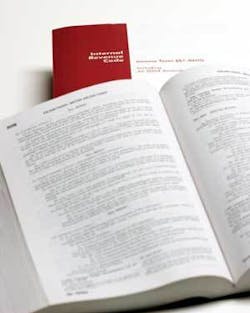How to handle the growing risk of an IRS audit
Congress is planning for substantial increases in IRS audits. Here’s how to minimize your risk!
Agrowing federal budget deficit has Congress eying ways to increase revenues. One target is trying to close the “tax gap,” the difference between what taxpayers should have paid and what they actually paid in federal income taxes. The tax gap is estimated at more than $290 billion in 2001, the last year for which records were available.
As a result, Congress is planning for substantial increases in Internal Revenue Service audits. Congress recently raised the IRS’s budget to $10.68 billion, which includes a substantial increase in money earmarked for audit and other enforcement activities.
Continued increases in IRS funding and new technology will shift more IRS personnel from data entry into audit and enforcement activities. As a result, doctors should expect the IRS audit rate to increase each year.

